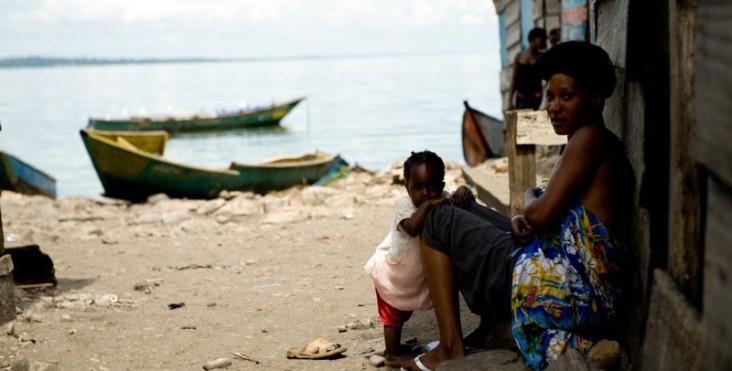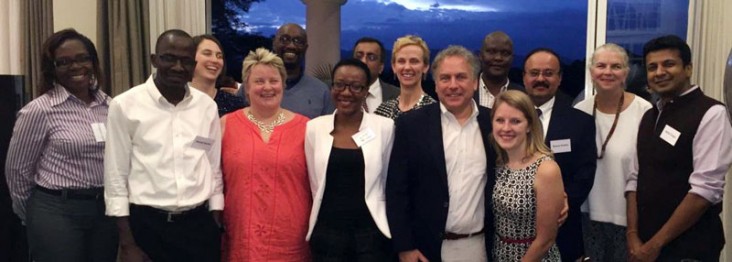- What We Do
- Agriculture and Food Security
- Democracy, Human Rights and Governance
- Economic Growth and Trade
- Education
- Ending Extreme Poverty
- Environment and Global Climate Change
- Gender Equality and Women's Empowerment
- Global Health
- Water and Sanitation
- Working in Crises and Conflict
- U.S. Global Development Lab

Project ADVANCE Leverages African-centered Global Partnerships to Design and Develop Effective and Accessible HIV Vaccines
February 2017 – Significant gains have been made in the past 30 years of combating the HIV and AIDS epidemic, but continued commitment is critical to realizing an AIDS-free Generation. In 2016 alone, HIV infected more than 2 million people and resulted in the deaths of more than 1 million. Sub-Saharan Africa remains the region most severely affected with 25 million adults and children living with HIV and AIDS. The U.S. Agency for International Development’s (USAID’s) investment in the ADVANCE (Accelerate the Development of Vaccines and New Technologies to Combat the AIDS Epidemic) project strengthens the African research environment by enabling scientists on the continent to contribute – and eventually lead – novel HIV vaccine design and testing to improve the prevention and treatment of HIV and AIDS. These efforts will enhance preparation for future epidemics and sustainable clinical infrastructure development. USAID, as a key implementing agency of the U.S. President's Emergency Plan for AIDS Relief (PEPFAR), and its partners are committed to reducing the continuing spread of HIV infection to fully realize a world where HIV and AIDS are no longer a burden on health and development in regions most devastated by the epidemic.
Representatives from International AIDS Vaccine Initiative (IAVI), its partners in Africa and India and USAID marked the official ADVANCE launch in Nairobi on November 9, 2016. The day-long workshop featured rich presentations and discussion from a range of ADVANCE activities, including epidemiology [PDF, 570KB] and community engagement, clinical trials and the vaccine pipeline, VISTA (Vaccine Immunology Science and Technology for Africa) [PDF, 1.0MB], training and capacity building.

Site visits continued through November 15, 2016, to further highlight ongoing, innovative USAID supported work with field visits to sites whose work focuses on key and priority populations such as women and children, those who engage in risky sexual behaviors and a Lake Victoria fishing community. A better understanding of the social, cultural and economic challenges of vulnerable populations informs the design of vaccines and other new prevention interventions that can be adopted broadly and rapidly. This work also ensures the development of inclusive and effective health policies and improves access to critical counseling and healthcare services to those who need it most.
Building on long-standing partnerships with the IAVI [PDF, 672KB] and African and Indian research centers, the 5-year project ADVANCE furthers USAID’s HIV Vaccine and Biomedical Prevention Research Project. The ADVANCE Centers of Research Excellence network includes the Aurum Institute (South Africa), the Kenya AIDS Vaccine Initiative-Institute for Clinical Research, the Kenya Medical Research Institute-Wellcome Trust Research Programme, the Medical Research Council/Uganda Virus Research Institute (UVRI), the UVRI-IAVI HIV Vaccine Program, Projet San Francisco (Rwanda), the University of Kwa-Zulu Natal Human Pathogenesis Programme (South Africa) and the Zambia-Emory HIV Research Project, along with Imperial College London.







Comment
Make a general inquiry or suggest an improvement.